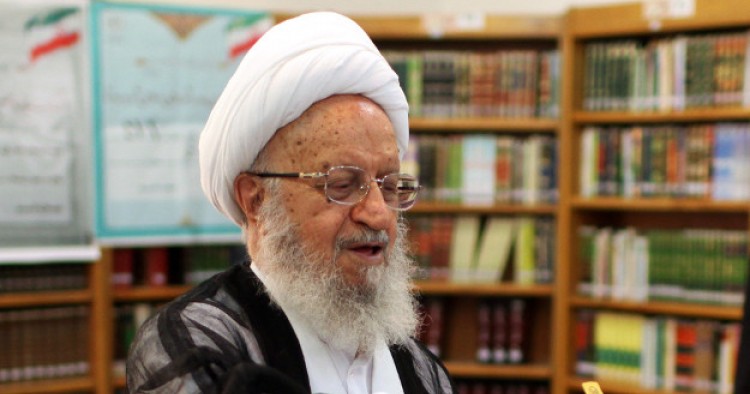On January 27, an influential hardline Iranian cleric called on the country’s repressive Basij forces to counter the use and influence of foreign media in Iran. “One must not have a passive approach toward foreign media, and we should focus on investing in making the cyberspace healthy,” warned Grand Ayatollah Naser Makarem-Shirazi. He also urged the authorities to increase the budget for media sources inside the country to neutralize foreign media outlets owned by Iran’s “enemies.”
Although the Iranian authorities closely monitor the internet and access to foreign media in the country, Makarem-Shirazi argued that “filtering does not solve the cyberspace problem.” Previously, he had also cautioned that high-speed mobile internet were “immoral and unlawful” and violated Islamic sharia law.
The Iranian government makes it extremely hard for foreign media to operate in Iran. The BBC’s Persian service has been a primary target. Last year, the Iranian government arrested at least two British-Iranians on charges of working with the BBC Persian. On January 22, the Iranian Judiciary confirmed that a Revolutionary Court in Tehran had upheld a five-year jail term for Nazanin Zaghari-Ratcliffe, a British-Iranian charity worker, and one of the charges against her was reportedly working for the BBC Persian. Her family members denied it.
Many Iranians secretly use banned satellite receivers to watch international programs, or circumvention tools to access Persian-language foreign media outlets blocked by the authorities. But the regime has stepped up crackdown on both in recent years.
The Middle East Institute (MEI) is an independent, non-partisan, non-for-profit, educational organization. It does not engage in advocacy and its scholars’ opinions are their own. MEI welcomes financial donations, but retains sole editorial control over its work and its publications reflect only the authors’ views. For a listing of MEI donors, please click here.













